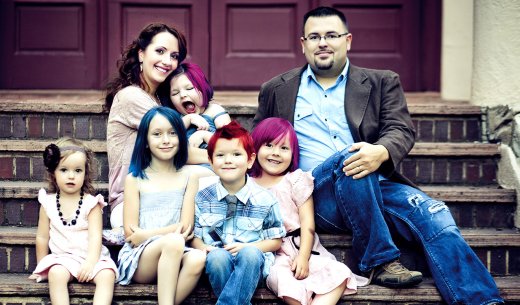
The cinema is so many things at once. And when VanRamblings looked at the films in this year’s VIFF selections, we became aware of the fact that it is a form of response. The Dardenne Brothers, Ken Loach, Cristian Mungiu, Gianfranco Rosi, and Kleber Mendonça Filho are sounding alarms, while Jim Jarmusch, Kenneth Lonergan, Barry Jenkins, Maren Ade and Olivier Assayas are fixed on internal landscapes, proclaiming the urgency of self-realization. What can also be seen in this year’s Vancouver International Film Festival lineup is a bounty of vital work from artists from all around the world who will not stop until they see their visions all the way to the end.
Today on VanRamblings, four more outstanding VIFF films that are destined for greatness in the annals of human scale cinema.
The Birth of a Nation. Winner of the Audience and Grand Jury Prizes at the Sundance Film Festival this year, up until the emergence of the controversy surrounding the film’s writer-director Nate Parker and his co-writer and friend Jean Celestin arising from 1999 sexual assault charges leveled against both, The Birth of a Nation was an odds-on favourite for a Best Picture Oscar nomination, and perhaps a win. Now? Not so much. VIFF is very much aware of the controversy, VIFF Chief Programmer Alan Franey stating, “We need to be sensitive to the opinions and controversies here so we will be doing our best to keep people in that safe zone of not prejudging or getting too upset, making sure opinions don’t get treated as fact if they’re just opinions.” Note should be made that Nate Parker was acquitted of the sexual assault charge. Jean Celestin was convicted and later granted a new trial, though the woman declined to testify again and the case never made it back to court. In 2012, the unidentified woman took her own life.
Will you attend the single screening of The Birth of a Nation, at 5pm, Saturday, October 1st at The Centre for the Performing Arts? The issue is art versus realpolitik. Nate Parker will be present in Vancouver to introduce the Special Presentation of his award-winning, and much lauded film …
“A significant achievement for writer, director, producer and actor Nate Parker, a searingly impressive debut feature, a biographical drama steeped equally in grace and horror, The Birth of a Nation builds to a brutal finale that will stir deep emotion and inevitable unease, the film an accomplished theological provocation, one that grapples fearlessly with the intense spiritual convictions that drove Nat Turner to do what he had previously considered unthinkable.
Artfully modulated and fitfully grueling, Nate Parker’s well-researched screenplay offers its own bold take on the widely contested narrative of Turner, a Virginia-born slave and Baptist preacher who led the 1831 uprising that claimed 60 white lives and led to the killings of 200 blacks in retaliation, and served as a crucial moment of insurrection en route to the Civil War three decades later. The film’s most resonant element isn’t its physical realization so much as its spiritual and intellectual acuity, its warm, earthy saintliness, and its historical and contemporary evocation of the ongoing black struggle for justice and equality in the United States. The Birth of a Nation earns that debate and then some.”
The above quote is from Justin Chang’s Sundance Festival review in Variety.
The Handmaiden. A bodice-ripper, a sexy and depraved lesbian revenge story about a pickpocket who poses as a maid to swindle a sequestered heiress, an erotic thriller that prioritizes female sexuality and exquisite set design to intoxicating effect, an intensely pleasurable and lavishly shot Gothic melodrama, exquisitely filmed, kinky, brimming with delicious surprises and spiced up with nudity and verbal perversions, accomplished South Korean director Park Chan-wook transposes Sarah Waters’ sapphic Victorian potboiler Fingersmith to Japanese-occupied Korea at the beginning of the twentieth century, the story told in three parts and from multiple points of view like a modern-day Rashomon. Amidst the heavy slogging of VIFF, The Handmaiden may be just the sort of palliative you’ll require to rescue yourself from VIFF’s annual foray into cinema of despair. You know who you are. See you at a screening of The Handmaiden.
Under the Shadow. Curtis Woloschuk and the Alt(ered States) crew of twisted programmers put in so many hours in preparation for their genre defying series, and year-in, year-out VanRamblings pays the series short shrift. Not this year. First off we’ll start from this brief column by Indiewire editor Anne Thompson …
“Wait a second. Can the U.K. submit a film for consideration for the Best Foreign Language Oscar? Sure. As long as it’s not in English. Take last year: Ireland, not Cuba, submitted Spanish-language film Viva. And France controversially chose the Turkish Mustang as its official entry over a list of top French auteurs. If the submitting country paid for the movie and supplied key personnel, it doesn’t matter what language it’s in. The French produced Mustang and its director Deniz Gamze Ergüven, born in Turkey, is based in Paris. (Her next movie is English-language.) And the Irish produced Viva, even though director Paddy Breathnach shot with local actors in Havana.
And thus the UK’s selection organization, BAFTA, has submitted writer-director Babak Anvari’s well-reviewed Sundance mother-daughter drama Under the Shadow, a 1988 Iran-Iraq War thriller shot in Farsi starring Narges Rashidi, Avin Manshadi and Bobby Naderi.”
Otherwise, there’s this representative review of Under the Shadow …
“Consequence of Sound (A-). Terrifying, a spooky ghost story that singes the nerves as much as it coddles the mind. Set in 1988, the story follows a small family in Tehran trying to cope with the tail end of the Iran-Iraq War. This isn’t an easy life: bombs come and go, windows are taped in the likelihood of an explosion, and the basement provides daily refuge from any oncoming missiles. These aren’t even the larger issues, at least not to Shideh (Narges Rashdi). When we first meet the brave mother and wife, her dreams of studying medicine are crushed by a stern administrator. “I suggest you find a new goal in life,” he tells her, following a severe brow beating about her riotous political history. You see, Shideh is a black swan — she’s rebellious, strong, fierce, and independent.
Everything clicks in Under the Shadow. Rashdi is captivating, sweating her way through a terse 84-minute performance that’s physically, mentally, and spiritually exhausting. Her chemistry with Avin Manshadi is equally remarkable, almost too real, which sells the heart-stopping finale in ways similar productions have stumbled hard. Director Babak Anvari spares no expense with his characters, dedicating as much time to their backstory as he does to the film’s creepy mythology. Extraordinary, captivating, jarring, calimitous, genre bending, claustrophobic, messy, convincing and unnerving, Under the Shadow embraces the original tenets of horror, back when eerie tales were meant to enlighten rather than simply scare. On his first try out, Anvari wildly transcends the limitations that modern audiences have placed on the genre, and it’s a bold testament to his abilities as a filmmaker.”
Worth considering for a terrifying VIFF screening, don’t you think?
Growing Up Coy. There is no more humanizing experience than attending the annual Vancouver International Film Festival, to remind ourselves once again that we’re all in this together, that there is much injustice in the world, and our world will only change if we fight for, demand that change. Growing Up Coy is a film of the moment, the story of Coy Mathis, a transgender girl who was born a boy, garnered international attention in 2013 when her parents, Jeremy and Kathryn Mathis, filed a complaint accusing the school district of violating the state’s anti-discrimination law.
The Mathises went on to win their case, but not before coming under heavy criticism for putting Coy, then a 6-year-old first grader, in front of reporters and camera crews and on television with Katie Couric. Now, they’re poised to be foisted back into the spotlight with the documentary Growing Up Coy, which had its premiere on June 16 in New York at the Human Rights Watch Film Festival.
Directed by Eric Juhola and produced by his husband, Jeremy Stulberg, Growing Up Coy picks up with the Mathis family in early 2013, about six weeks before they went public with their case. Together with their lawyer, the Mathises believed that speaking openly was necessary to sway the public in Coy’s favour and to help win her case. But, as the documentary shows, the move unleashed a media feeding frenzy that previewed the fights that would roil America in 2016, fraying the couple’s relationship, drawing excoriations from talking heads and internet trolls, at times alienating their four other children and indelibly etching Coy’s name into cyberspace’s inexhaustible memory bank.
Nigel M Smith’s four star review in The Guardian is as good an entry point as any into providing meaning for the struggle of the Mathis family.

![]()
![]()
![]()
![]()
![]()
![]()
![]()
![]()
![]()
Today’s, and previous VanRamblings’ VIFF 2016 columns that present information, trailers, and reviews by thoughtful and erudite critics of films screening at VIFF 2016 — and soon, much more — may be found here.
And, oh yeah, the opening paragraph of today’s VanRamblings column? An excerpt from the opening address by Kent Jones, the director of the 54th annual New York Film Festival, which opens the day after our home grown VIFF gets underway, on Friday, September 30th.